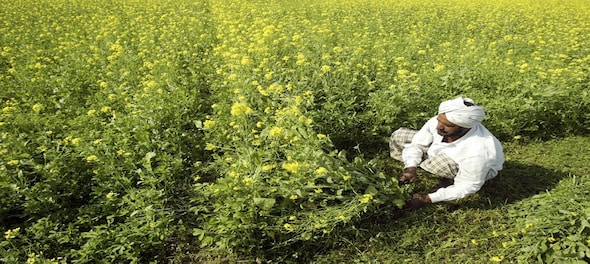
In its entirety, union budget 2019-20 was no way an interim budget. From tax benefits for middle classes to a massive farm package, it had it all. But as expected, the biggest announcement was of Rs 75,000 crore income support scheme for small and marginal farmers.
The PM Kisan Samman Nidhi Program will provide Rs 6,000 to farmers owning land under two hectares as a direct payment in three equal installments. The scheme is expected to benefit nearly 12.6 crore farmers.
Pitched as an input support for farming, interim finance minister Piyush Goyal in his budget speech said, “PM Kisaan Samman Nidhi program will meet the emerging needs of the farmers, especially ahead of the harvest season and help them lead respectable and dignified lives, in the years to come.”
While finance minister broke the norms of an interim budget by announcing a large Rs 75,000 crore package, the smart move was to make it retrospective. The income support is applicable from December 2018 and Rs 20,000 crore has also been budgeted for FY19. So this becomes a current year program and will be treated as a FY19 scheme.
Most critics are questioning the timing of the announcement. Yogendra Yadav, Swaraj India president, said, “Farmer support scheme is timed to get votes. It sounds more like a bribe, to say by March Rs 2,000 will be in your account, please vote for us."
While corporate India has been quick to hail the move as one that will boost rural consumption, the ultimate beneficiaries, the farmers don’t seem to be too enthused. Biggest reason being the meagre amount of Rs 2,000 that will reach them in an installment.
“Big announcement, small assistance,” said a tuar farmer from Amravati in Maharashtra. "We spend over Rs 12,000-15,000 per acre on cultivating one crop. We were looking forward to this income support scheme but now don’t know how much it will help.”
Ashok Dhawale of All India Kisan Sabha (AIKS) said Rs 6,000 per year amounts to only two percent of the overall production cost for a year-long farming and hence bodes very little for farmer’s welfare. "It is the biggest election jumla, what will be achieved an income support of Rs 3/day/person? Given the agri crisis and the rising costs of inputs, how much can be arrange for a meagre Rs 2,000 that will be given to farmers as an installment?"
Ashok Dalwai, additional secretary, ministry of agriculture, agreed that the Rs 6,000 is a meagre amount, but added that this is a beginning by the government. He also highlighted that since no one subsidy or programs are getting subsumed in this scheme, it will be an add-on for the farmers.
The expectations was the scheme will be on the lines of KALIA of Odisha or Rythu Bandhu Scheme of Telangana, however the central scheme falls short on many aspects.
One, it isn’t open to all land-holding farmers like in Rythu Bandhu or focused on landless agriculturists like in KALIA. Farmers say this restricts the benefits to needy farmers. Dhawale said, “The scheme leaves out crores of landless tenant farmers and adivasi farmers. They do not get a single penny as support from the government. More than half the country is reeling under a severe water crisis but there was nothing about drought relief in this budget.
Sharad Nimbalkar, former vice chancellor of Punjabrao Deshmukh Agri University said, "The negligible amount of Rs 6,000 to be given to each farmer possessing two hectares of holding in equal three installment seems to be a mockery; particularly in case of dry land farming where only kharif crop is cultivated. In our country majority regions are dry land, dependent on monsoons for cultivation."
For most farmers, the biggest push will be in form of a supportive market that does not restrict crop prices. Babgaowda Patil, farmer leader in Karnataka says he has been against any money support apart from remunerative prices for crops. "These freebies are making people idle. Even if the government gives Rs 10,000 and crop prices do not go up, farming will not survive. We are even ready to pay income tax, but first increase our income by paying remunerative prices for our crops and increasing procurement or at least adding a price support."
Some critics highlight that the devil will be in implementation. Farmer databases will remain the biggest challenge considering very few states have moved ahead on digital land records. Rajendran Narayanan, assistant professor at School of Liberal Studies, Azim Premji University said, "Verification of land records on ground, accessing the money will be a challenge as payment transfer systems are fraught with issues."
First Published: Feb 2, 2019 7:00 AM IST
Check out our in-depth Market Coverage, Business News & get real-time Stock Market Updates on CNBC-TV18. Also, Watch our channels CNBC-TV18, CNBC Awaaz and CNBC Bajar Live on-the-go!


Dharwad Lok Sabha Election 2024: BJP's Pralhad Joshi eyes fourth term from this Karnataka seat
May 7, 2024 9:33 AM
Gulbarga Lok Sabha election: Mallikarjun Kharge's son-in-law Radhakrishna faces sitting BJP MP Umesh Jadhav
May 7, 2024 9:00 AM

